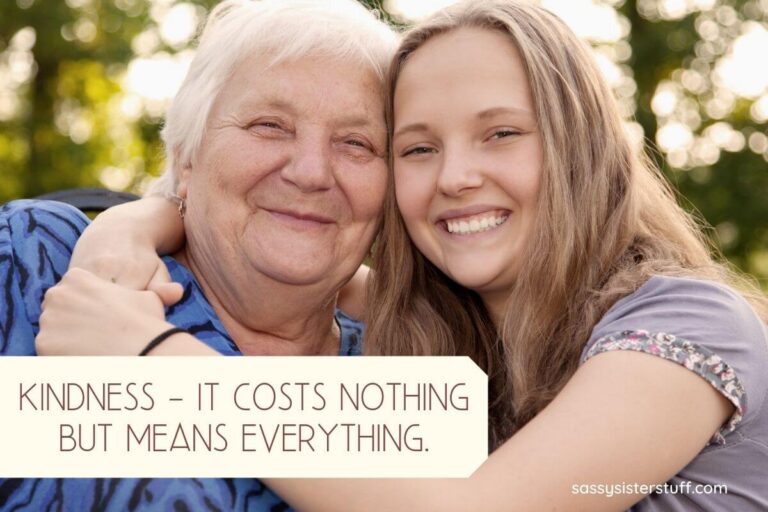15 Everyday Habits That Can Come Across as Rude
Sometimes, everyday habits can unintentionally come off as rude. These small actions might affect how others feel around you.
Understanding these accidental habits can help you improve your social interactions and avoid unintentional offense. Becoming aware of common actions that seem rude allows you to adjust your behavior and connect better with those around you.
Being chronically late

If you’re often late, it can come across as disrespectful, even if you don’t mean it that way. People usually see chronic lateness as a sign that you don’t value their time.
Sometimes, you might struggle with estimating how long tasks take or underestimate traffic. This can lead to a domino effect, delaying not just you but others as well.
Setting reminders or leaving earlier can help you show more consideration for their time.
Checking your phone during a conversation
When you check your phone while talking to someone, it often comes across as distracted or uninterested. Even quick glances can make the other person feel unimportant.
If you need to use your phone, try explaining why or including your companion in the moment. Otherwise, putting it away shows respect and helps keep the connection strong.
Constantly interrupting others
When you interrupt someone, it can make them feel like what they’re saying isn’t important. It might seem unintentional to you, but to others, it can come across as disrespectful or selfish.
If you catch yourself interrupting often, try slowing down and focusing on truly listening. Waiting for the other person to finish before you speak shows respect and improves the flow of conversation.
If you slip up, a quick apology can help smooth things over.
Not making eye contact
When you avoid eye contact during conversations, people might think you’re uninterested or distracted. Even if you feel shy or nervous, looking away can come across as rude without meaning to.
Maintaining natural eye contact shows you’re engaged and respectful. It helps build connection and trust with others.
Sometimes, people avoid eye contact because of social anxiety or being deep in thought. A small effort to meet eyes can make a big difference in how others see you.
When you speak too loudly in places like cafés, libraries, or public transportation, it can easily disturb others around you. Your voice volume affects the atmosphere and signals how aware you are of your surroundings.
Sometimes, you might not realize your voice carries farther than you think. Lowering your volume helps keep the environment comfortable for everyone.
If you’re taking a call or chatting with friends, try to be mindful of how loud you are.
Ignoring people when they greet you

When someone greets you and you don’t respond, it can come across as rude, even if you don’t mean it that way. People usually expect a simple nod, a smile, or a “hi” back as a sign of acknowledgment.
Sometimes, you might be distracted or not in the mood to talk, but ignoring greetings regularly can make others feel unappreciated or ignored. A small gesture of recognition can go a long way in keeping your relationships positive.
If you find it hard to greet everyone, focus on acknowledging those you see often.
Failing to say ‘please’ and ‘thank you’
When you forget to say “please” or “thank you,” it might seem small, but it can come across as rude. These simple words show respect and appreciation, which help good relationships grow.
Sometimes, people don’t say these phrases because they didn’t learn the habit or are distracted. If you make an effort to use them, you show others you notice their efforts and value their help.
It’s easy to brighten someone’s day with just a little politeness.
Cutting in line
Cutting in line, even by a small margin, can come across as disrespectful to others waiting their turn. You might not mean to be rude, but it disrupts the flow and can make people feel overlooked.
If you find yourself tempted to skip ahead, try to pause and consider how others might feel. A simple “excuse me” and asking if it’s okay can go a long way toward keeping things polite.
Respecting the order shows you value others’ time as much as your own.
Not apologizing after a mistake

When you make a mistake and don’t apologize, it can come across as rude or uncaring. People usually expect a simple “I’m sorry” to acknowledge that something went wrong.
Apologizing shows that you recognize how your actions might have affected others. It helps clear the air and prevents hurt feelings from growing.
Taking responsibility, even for small errors, builds trust and respect in your relationships.
When you pull out your phone during a conversation, it can feel like you’re not fully there. Even a quick glance at notifications might send the message that something else is more interesting than the people around you.
Try to keep your phone on silent and out of sight while engaging with others. This small step shows respect and helps everyone feel valued.
Being mindful of when and how you use your phone keeps the atmosphere friendly and connected.
Not listening actively
When you don’t listen actively, it can come across as rude even if you don’t mean it. If your mind wanders or you interrupt, the other person may feel ignored or unimportant.
Showing you’re fully engaged means giving your full attention, making eye contact, and responding thoughtfully.
Sometimes, distractions like your phone or multitasking can make you seem uninterested. Slowing down and focusing on the speaker helps avoid misunderstandings.
Being dismissive of others’ opinions
When you dismiss someone’s ideas, it can make you come across as uninterested or superior. Even if you don’t agree, acknowledging their point shows respect.
Try to listen fully before responding. Waiting until the other person finishes helps you avoid interrupting, which often feels rude.
Remember, everyone’s perspective has value. Showing that you understand before sharing your thoughts creates better conversations and stronger connections.
Texting during meetings

When you text during meetings, it can easily come off as disrespectful, even if you’re just checking something quickly. People often notice, and it can seem like you’re not fully paying attention.
It’s best to keep your phone on silent and away to show you’re engaged. If you need to send a message, try stepping out or waiting until a break.
Avoiding personal texting during meetings keeps things professional.
Overusing filler words like ‘um’ or ‘like’
When you frequently say “um” or “like” during a conversation, it can make you seem unsure or distracted. These filler words often pop up when you’re thinking about what to say next.
If you want to come across as more confident and polite, try to notice when you use fillers. Being aware is the first step to reducing them.
Replacing fillers with short pauses can help your words sound clearer and more intentional. This simple change shows respect for the listener and improves your communication.
Not holding the door for others
When you don’t hold the door for someone, it can come across as unkind, even if you don’t mean it that way.
It’s a simple gesture that shows consideration and respect.
You don’t have to hold the door if it’s out of your way or if the person is far behind.
But stopping briefly to hold it for someone right behind you helps create a positive vibe.







